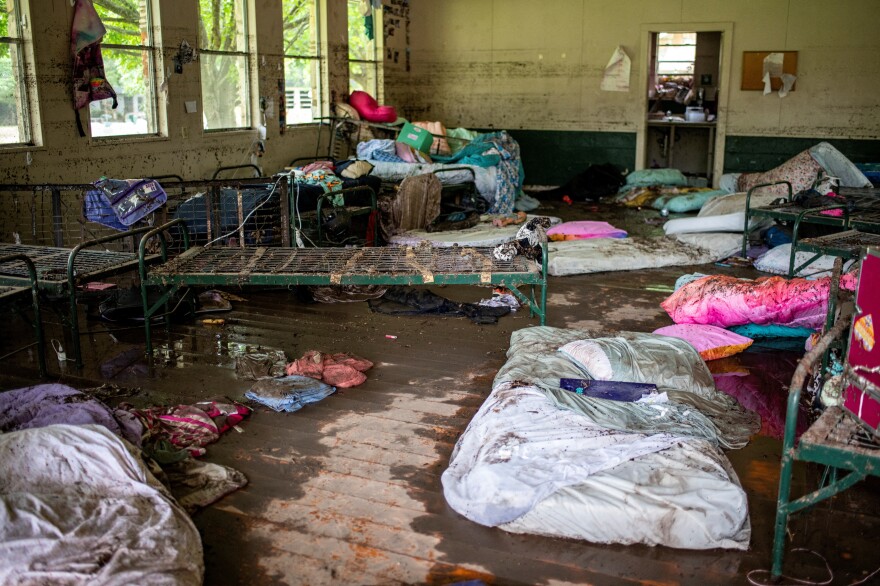Sign up for TPR Today, Texas Public Radio's newsletter that brings our top stories to your inbox each morning.
The deadly July 4 floods caught many residents in Kerr County — including people in the disability community — off guard.
The City of San Antonio’s Fire Department has advice for everyone, especially those living with a disability, on how to prepare for an emergency.
Joe Arrington, public information officer for the San Antonio Fire Department and Emergency Operations Center, said everyone, no matter their ability, should have a plan in place and have a go bag in case of an emergency evacuation.
“Know your ways out. Know how to evacuate, if need be,” he said. “Have your emergency contacts with you, all the needs you may have, whether that's extra medication, medical equipment, oxygen, portable oxygen, CPAP, suction pumps, whatever it is you need. Also bring extra batteries.”
Arrington said it’s easy to ignore a phone’s notifications. He said notifications like weather alerts should always be on.
“You know the annoying tone that goes off in the middle of the night? We tend to turn it off. But having those on and having those active can save your life,” he added. “That's the first thing. Turn those alerts on so that you can get that awareness, that alert, ahead of time.”
Arrington said alert systems sometimes suggest locations where residents can go to stay safe in an emergency.
Residents can sign up for the Accessible Alert System in accessible formats at the Accessible AlertSA website.
The ACL Administration on Community Living Emergency Preparedness is also available for those with a disability or elders. It includes a downloadable medical information card and downloadable communication assistance card.
Residents can also utilize the State of Texas Emergency Assistance Registry (STEAR), a free registry that provides local emergency planners and emergency responders with additional information on the needs in their community.
“If people opt into that and register on there, then we know exactly who we need to have that accountability towards to make sure that they're getting the services they need, the alerts they need, any needs that they may have during an emergency or during a disaster,” Arrington added.




